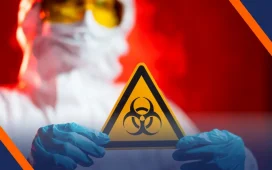Some 70,000 in England are thought to have the condition, spread via blood-to-blood contact. It can be found in cosmetic, dental or health operations if equipment is not sterilised properly and where infection control is poor.
Those with it can live without symptoms for decades. But if untreated it can cause life-threatening conditions such as liver failure.
Around one in 30 people with the virus is thought to have come into contact with infected blood outside of a healthcare setting. Of 2,000 adults quizzed, a quarter said they had an impromptu tattoo overseas.
Yet three quarters were unaware hepatitis C can be contracted while having an inking or piercing. Rachel Halford, chief executive of the Hepatitis C Trust, said it can be a “time bomb” in the body, adding: “We would encourage anyone that has had a tattoo abroad, from someone that doesn’t hold a licence or in prison, to order a hepatitis C test from the NHS.
“The test is free, confidential and you will have your results back within a few days. If the result is negative, it will give you peace of mind. If the result is positive, hepatitis C can be easily treated.”
The NHS launched an at-home testing service in May. Users drop a blood sample from a finger prick into a tube, then post it for analysis.Details at hepctest.nhs.uk
Mo Goolamallee found he had hepatitis C three decades after medical care in Sri Lanka.
He probably picked it up at 20 during treatment following a holiday motorbike accident.
Father-of-one Mo said: “When you go on holiday you want to have fun. My accident was just one of those things.
“I hadn’t thought about it for years and never had any symptoms. I’ve always been active. In January this year I had an accident at the gym and had to go to the hospital…it turned out I had hepatitis C. I was shocked.”
Mo, 55, of London, added: “We need to make more people aware of the virus and get more people to test.”










